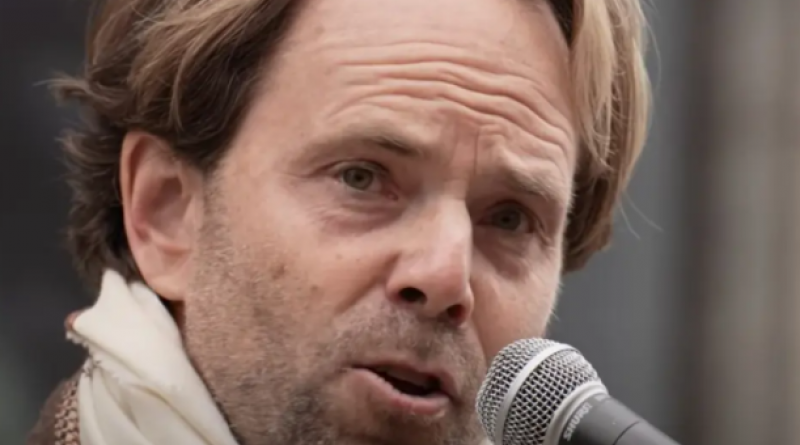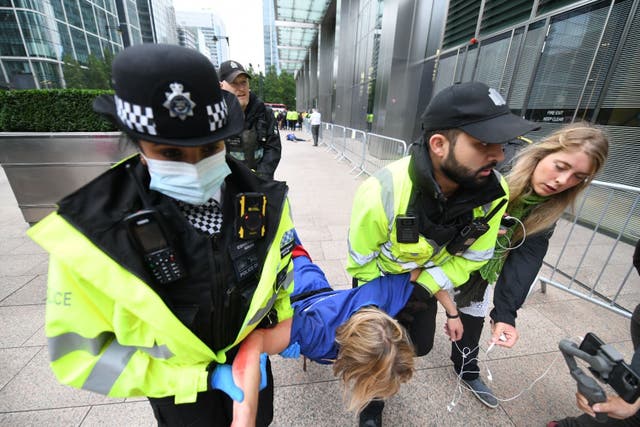Beyond XR: Could government failure at Cop26 fire the starting gun on a brave green future?

Interview: The Glasgow summit is now or never for tackling the climate emergency. Harry Cockburn asks former XR strategist Rupert Read what is next for the environment movement if the meeting is a flop.
To stave off the most catastrophic impacts of living in an overheating world, we must slash greenhouse gas emissions down to practically nothing. We have known this for a long time.
Yet emissions are still rising.
Even as hundreds of people have drowned across Europe this summer in terrifying extreme weather events made “nine times” more likely by human-induced climate change, and as scores of wildfires ravaged the US and Canada following a “heatdome” made “150 times” more likely by human-induced climate change, projects to recover more oil, more coal and more gas are continuing.
And the countries claiming to lead the response to the crisis, such as the UK and the US, are engaged in huge new fossil fuel enterprises.
With thousands of the world’s best scientists from hundreds of institutions around the world united in their message that every year is vital in the race to cut emissions to zero, the gulf between the understanding of the perils, and the action required to deal with them, has never seemed bigger.
In 2018, the launch of Extinction Rebellion and the surging popularity of Greta Thunberg’s Fridays for Future appeared to herald a seachange in the environment movement, with tens of thousands of protesters closing key routes in central London, thousands of whom were arrested, while similar demonstrations were held by XR offshoots in cities around the world.
But just weeks from Cop26 – recognised as the planet’s most important climate summit to date – XR’s latest demonstrations, lasting two weeks in central London, are considerably diminished from what they were in 2019.
Is the movement in crisis? With surging concern over the climate emergency, isn’t it something of a surprise that fewer activists are on the street?
What does this mean for the environment movement and the pressure it is exerting on government at this critical juncture?
The Independent spoke to former XR strategist and spokesperson Rupert Read, who is also a professor of philosophy at the University of East Anglia, to find out what is going on.
While no longer working as a senior part of XR, Read remains invested in the movement and has spoken to the media and to the crowds attending the demonstrations in London.
Read is full of praise for the activists leading the current civil disobedience campaign targeting the City of London.
He says: “XR have done extremely well … in bringing attention to this vital issue and to their immediate demand,” for an immediate end to all new fossil fuel investments.
“They’ve managed to do this with relatively low numbers. XR is really punching way above its weight, which is impressive.”
But Read concedes XR is “not on a growth trajectory” and “the numbers are clearly much lower than during the October 2019 rebellion”.

(AFP via Getty)
“We do have to notice that XR is not exponentially growing,” he says. “And sometimes XR says ‘you need 3.5 per cent of the population to be actively involved to actively succeed’. Well, XR is orders of magnitude short of that, so my opinion, and I’m not alone in this, is that what it shows is the great impact of XR will be to have created a much larger space – which is climate consciousness – making it easier for people in the wider population to identify with.”
He acknowledges the fact Extinction Rebellion makes “substantial asks” on activists, including encouraging people to break the law, which he says is “tricky for some people” (the organisation was accused of using “white privilege” in a tactic under which hundreds of people were arrested).
But crucially, he describes it as XR having “moved the Overton window – the window of what’s politically possible”.
“XR has opened this huge space but it may now be for others who don’t seem so polarising to the average person to enter this huge space and really use it.”
It is this new space that Read is now intensely focused on.
But while it is tempting to suggest a new, more moderate, environmentally focused organisation or party could fill this power vacuum in a revolution which could supersede the likes of the Green Party, take power from the government and leave XR as a more radical flank of the environment movement, Read hesitantly rejects the notion of a sweeping revolutionary force.
“It would be great. I have no idea whether it’s possible,” he says.
“I do think the Green Party needs to step up in relation to this crisis. I have co-created a new organisation loosely affiliated to the Green Party called ‘Greens CAN’ – Greens Climate Action Network.
“The idea is that the Green Party, as well as contesting elections, should engage in non-violent civil-disobedience.”

(Gareth Morris)
He says he hopes this will create a, “radical flank to the Green Party but it would be a moderate flank to Extinction Rebellion – a little more careful than Extinction Rebellion is sometimes being, so as not to alienate people”.
But asked how groups such as Greens Can, the Green Party, XR and other environment groups, can really take power from government on the timescale required to meet the demands of the IPCC report, Read does not offer a particular framework.
Instead, his optimism lies in the fractured, piecemeal reaction of the public to the worsening environment crisis, which he believes will kick-start a more grass-roots revolution of public priorities.
“It’s quite possible that we’re going to see a big upsurge in workplace-based activism. We may be starting to see that with the creation of Lawyers for Net Zero, for example.
“It’s a useful thought experiment – if our children can’t go on symbolic strikes for an hour or a day, then why can’t the rest of us? That could be possible to get a significantly larger cohort of people involved in.
“We need to try something new again,” Read adds.
What could be the trigger that could take the environment level to the next level? It’s on the imminent horizon – Cop26.
“It’s going to be a huge wake-up call,” says Read. “After the terrible weather and the ‘code red’ IPCC report, the huge wake-up call is going to be when the world realises that the world’s so-called leaders are definitively not coming to the rescue.
“If they make any agreement at all at Glasgow, it is going to be so woefully inadequate.
“Then there is going to be a huge mobilisation opportunity. What I’m seeking to do – along with many other people – is to prepare for that, really. We don’t know exactly what’s going to work but it seems to me that what’s going to work is something which is very honest and direct about the situation but has lower barriers to entry than existing movements such as XR are perceived, rightly or wrongly, to have.
“This could mobilise a much larger phalanx of the population to understand that our government, our so-called leaders, are not coming to rescue us and that we have to act in a much more direct and dramatic way, and in much larger numbers.
“We’re going to change history.”
This sounds like revolution but Read does not characterise it as such.
He says: “I don’t think there’s going to be a revolution. What I’m looking for is a really huge mobilisation which is going to put a lot more pressure on existing governments. The potential for some of that mobilisation to take place through politics – so that’s where something like Greens CAN could come in and also a more direct building of resilience – of community action – given the extent to which the powers that be have failed us.
“We are living in terrifying unprecedented times, but that also creates unprecedented possibilities.”
The concept that the environment crisis will have to be dealt with by existing governments and within the framework of capitalism remains highly alien to the wider environmental movement.
This is what Read’s inclusive, non-polarising efforts are grappling with but it also appears he is leaving some room for manoeuvre, almost saying, “if there is a revolution, bring it on”.
September 2021
INDEPENDENT




